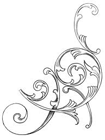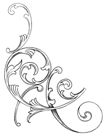By Dominic Cavendish for The Telegraph, 7 June 2015
Next Monday – June 15th – sees the 800th anniversary of the signing of the charter subsequently known as Magna Carta, that hallowed document which so crucially set down an insistence on the need for individual freedom under law.
Even though Shakespeare’s King John doesn’t show us his capitulation before his rebellious barons at Runnymede in 1215 – it’s not even a footnote – James Dacre’s revival could hardly be more timely: we get the context in which Magna Carta came into being. This capable production embraces King John’s remote, medieval qualities – in its costumes, its sword-wielding battle-scenes, its use of rugged chant and ethereal plainsong. And yet, as our Government thrashes around trying to rustle up a British bill of rights, it’s clear that we’re still in the grip of the flux and uncertainty the work so powerfully conveys.
Read Full StoryBy Sarah Hemming for the Financial Times, 7 June 2015
James Dacre’s fine, zesty staging of Shakespeare’s more rarely performed history play opens with much pomp and ceremony. Orlando Gough’s music (wonderful and expressive throughout) first dolefully mourns the passing of Richard the Lionheart then rouses into celebration as his brother John is paraded in to take the throne. But Jo Stone-Fewings’ John soon gives the lie to this outward show, snatching the crown with unseemly haste and cramming it on to his head. It’s a move that sets the tone for the evening, as Dacre delights in the murky wrangling, shrewd politicking and fickle expediency that drive the play’s depiction of medieval monarchy.
Indeed, no sooner is the crown on John’s head than a challenger emerges in the shape of his nephew Arthur, a boy, who has the backing of the French king. Issues of parenthood, succession and inheritance multiply with the arrival of Richard’s illegitimate son: a sardonic, charismatic character. In Alex Waldmann’s enjoyable performance, he relishes his newfound status, pulling strings and flirting with the audience, making you wonder whether his father was as unblemished as all that. But it is John’s reign under the spotlight here as Shakespeare explores a favoured theme: unsuitable monarchs and the legitimacy of leadership. It’s an issue that still resonates, despite the very different political scene — some audience members may sympathise with the citizens of Angiers who, asked to choose, find neither claimant to the throne appealing.







Comments